World Aids Day: Memorial sculpture unveiled in Birmingham
- Published
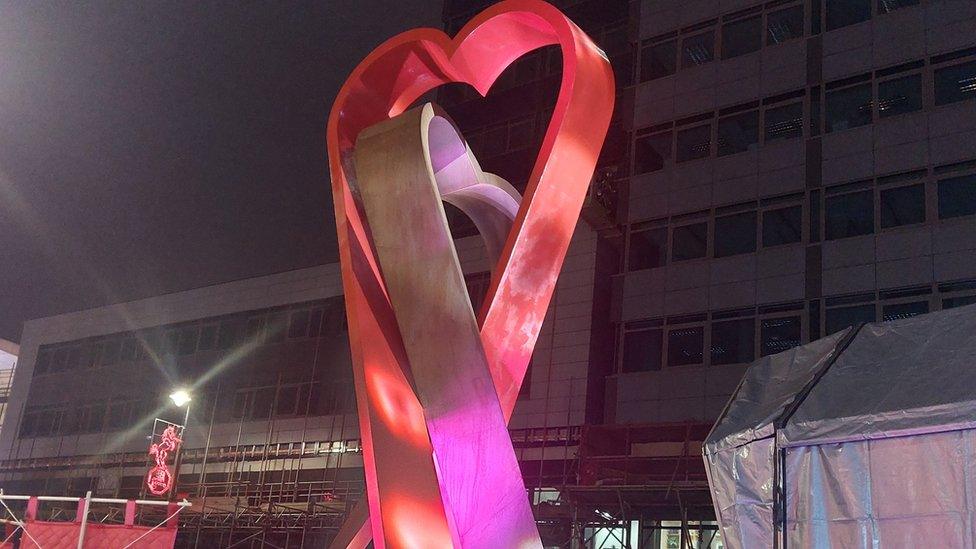
The memorial was unveiled in front of large crowds
An Aids and HIV memorial has been unveiled in Birmingham to remember those who have died from the virus.
The new public sculpture in Hippodrome Square, depicts two interlocking heart-shaped ribbons.
It was designed by Garry Jones and is accompanied by quilts made by hand, showing the history of the condition and those who have died.
"I wanted to remember those people that have been forgotten," Mr Jones said.
"It's taken me a long time to say 'I'm Garry, I'm HIV'. That's what I hope this does, to take all that fear and anxiety and pressure away from people who are living with HIV."
The 19.6ft (6m) steel sculpture was made by Luke Perry and Mr Jones said it will be the largest such memorial in the UK.
The memorial was unveiled on Thursday evening and marks World Aids Day.
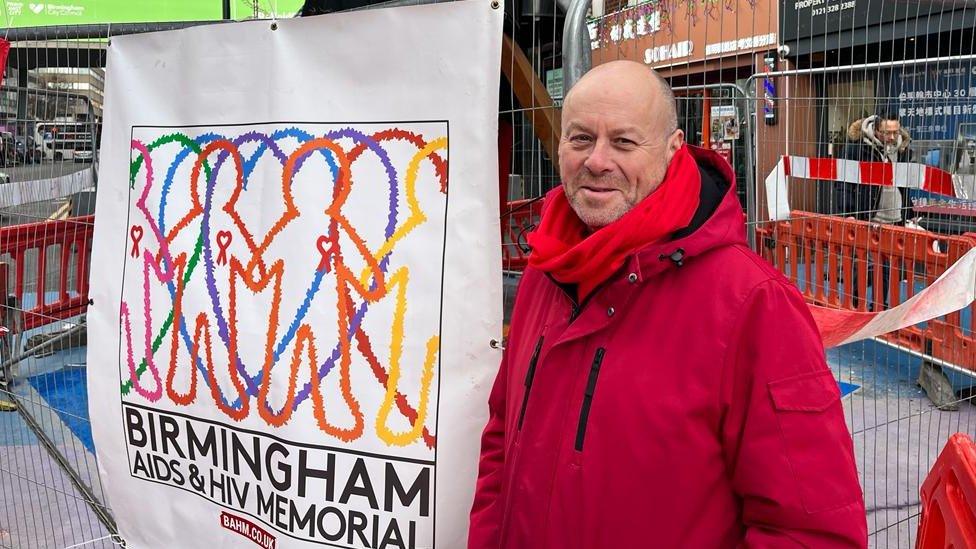
Garry Jones designed the memorial and said he wanted to remember people who have died from the condition and have been forgotten
More than £180,000 was raised to pay for it and the idea was ignited following the success of Channel 4 drama It's A Sin, which followed a group of friends during the Aids epidemic in 1980s London.
The dozens of quilts were taken on a procession before being placed around the sculpture.
One is in memory of Tom Matthews, an Aids campaigner who lived with HIV and who helped source funds for a range of projects in the West Midlands.
His partner, Ian Scott, said they were together for nearly 35 years but initially thought they would only have two years together.
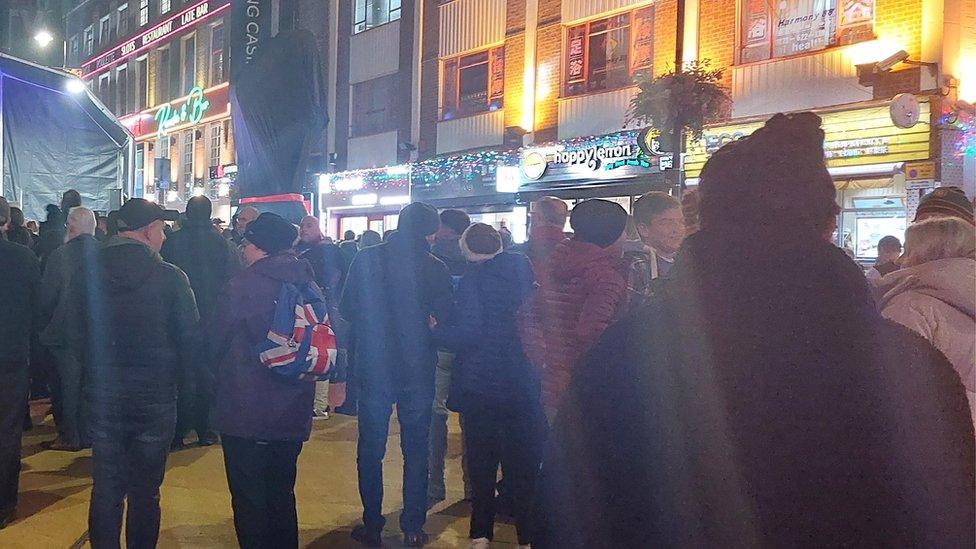
Crowds gathered for the unveiling from 18:00 GMT
"He was the most wonderful person. He was just amazing, there was something really inspiring about him," he told BBC Midlands Today.
Mr Scott added his partner "was the single most important thing" in his life and would "have loved the colours" in the quilt.
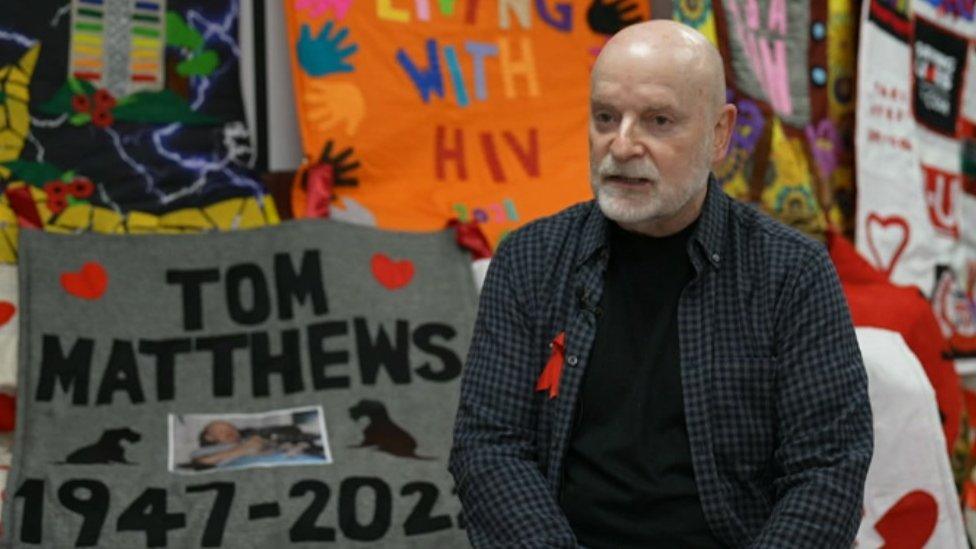
One of the quilts is dedicated to Ian Scott's partner Tom Matthews
Sue Sharpe is part of Sew Marvellous, a sewing group involved in making the quilts.
She said they were always willing to try something different and it was "quite moving to hear some of the stories".
"You don't hear about the 40-odd million or so who've died of HIV and if you do, it tends to get categorised with the gay community and it's not just the gay community, it affects a lot of people," she said.
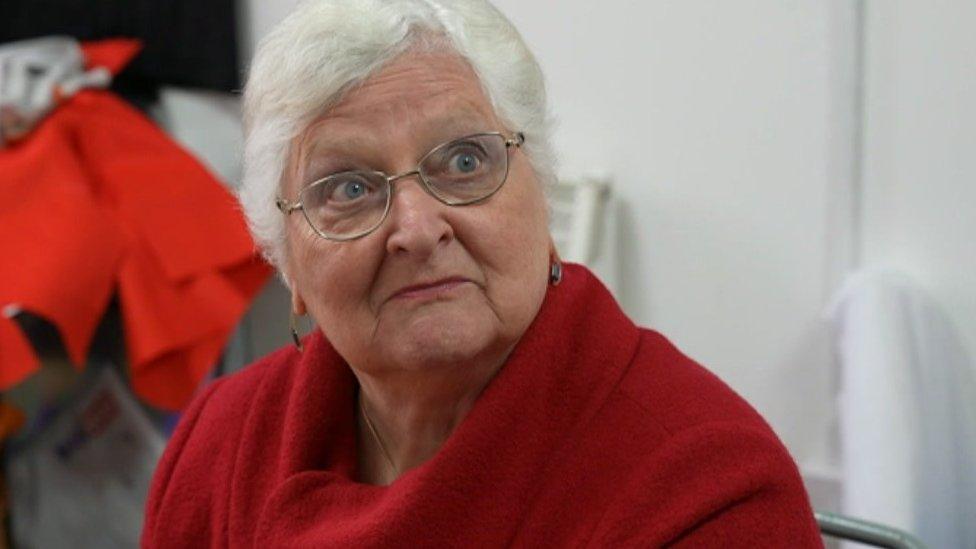
Sue Sharpe said the group Sew Marvellous began at the start of the pandemic when there was a call for nurses' scrubs

Follow BBC West Midlands on Facebook, external, Twitter, external and Instagram, external. Send your story ideas to: newsonline.westmidlands@bbc.co.uk, external
Related topics
- Published1 July 2022
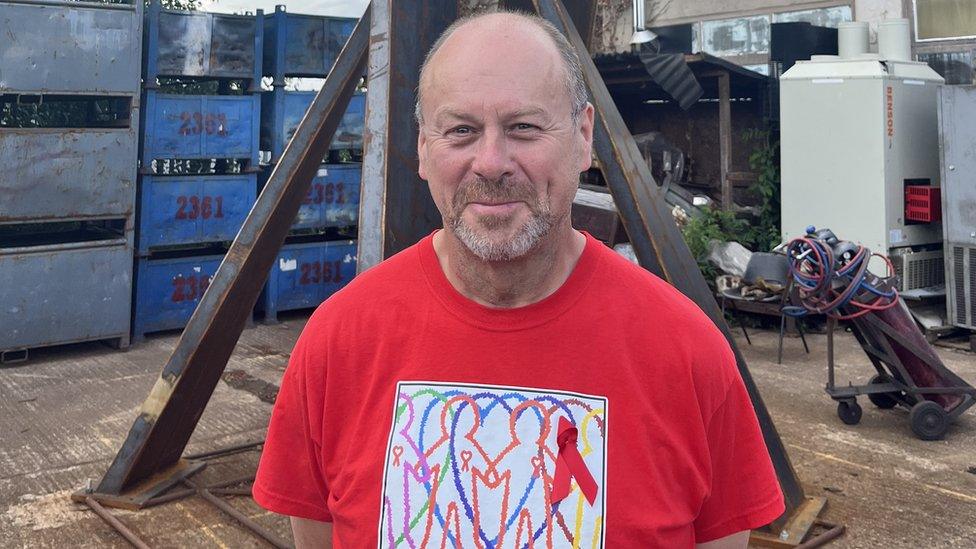
- Published7 April 2021
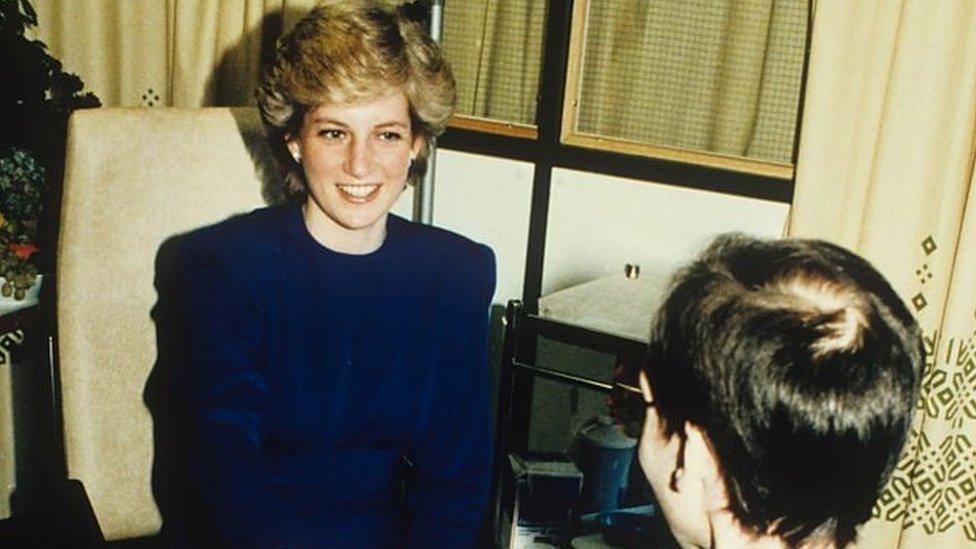
- Published19 February 2021
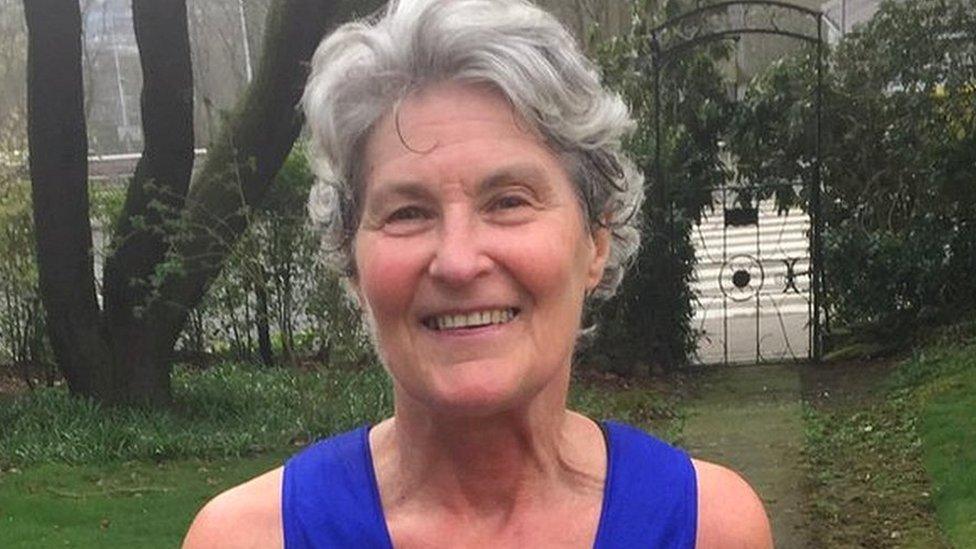
- Published5 February 2021
